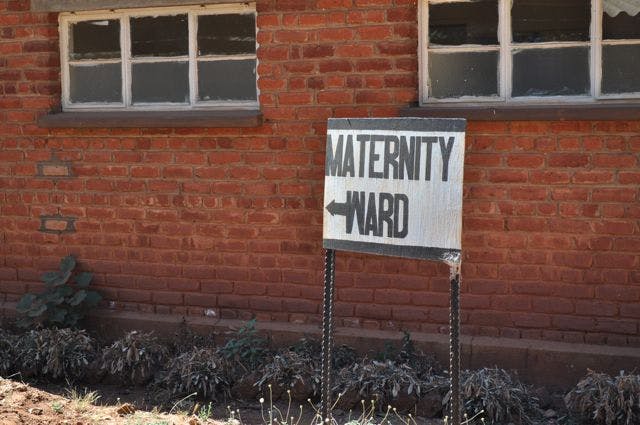Reflections on Maternal Health in Rural Zambia
Feb 28, 2022
Story


Today marks day seven in Zambia—about the half way mark of my journey with the International Reporting Project—and I’m sitting outside on the steps of my accommodation at the Macha Research Institute in Macha, Zambia. I’m typing in a Word Document because Internet access is hard to come by in rural areas like this. It’s here—available by Airtel data purchases that allow Zambians to connect online via their mobile phones—but the cost is expensive and often prohibitive.
I’m awaiting sunrise, because there’s something magnificent about the way the sun comes up in Africa. I remember it from my time in Kenya and Rwanda two years ago. The light casts a soft pink glow on everything around, and the sky seems to glow.
It’s 6:30 in the morning and the air is cold and crisp—it’s winter in Zambia, after all. Roosters are crowing from the homesteads around the Institute, signaling that it’s time to wake up, and the birds are singing a beautiful morning song. The sounds here are different from what I hear back in Portland, Oregon, reminding me that I am a long way from the place I call home.
As I mentioned, I am in Macha—a beautiful, rural village about 300 KM outside of Lusaka in the Southern Province. Yesterday, we had a full day of programing that included a site visit to the local mission-run hospital. We had the opportunity to tour the grounds, meet with doctors, and discuss health issues with patients with the assistance of a translator.
I learned that of the 208 beds in Macha’s hospital, most are in the women’s ward. That’s because the most common ailment treated here is complications from pregnancy. As a World Pulse staff and community member, this doesn’t surprise me. I’ve been passionate about maternal health for a long time, primarily because so many of the women in this community write fiercely about the challenges they face when it comes to maternity care.
In May, I worked with our community to detail these challenges and to propose potential solutions to the issue. I was deeply moved by the stories we received, and deeply affected by the power behind each woman’s submission. Still, it’s a different thing to read about what many women face when it comes to maternal health care than it is to see it first hand.
At the hospital, I met Melody Hachibamba, a 26-year-old young mother of two who gave birth to a stillborn child three weeks ago. The doctors suspect she has fistula—a hole in the vagina or rectum caused by prolonged labor. Left untreated, it can lead to severe complications and death. The pain in Melody’s eyes was palpable, the loss of her child obvious and heartbreaking. But she is one of the lucky who is receiving treatment for her physical ailments. UNFPA estimates that there are two to three million girls and women in developing countries who, like Melody, are living with obstetric fistula. Many do not have access to health care.
I left that hospital feeling a bit hopeless. It seemed to me that Melody and her community members are fighting an uphill battle. And they have little access to a place like World Pulse where they can come together, share, learn, and express. Accessing our site via mobile is costly; language barriers are an issue. This is all good feedback for us as a team as we begin to develop the next phase of our online platform—a version of our site that is less heavy and easier to access via mobile, that uses crowd-sourced translations to allow even those in rural villages who speak tribal languages to connect and reach out.
Then, I remembered all of my World Pulse sisters who are fighting exactly these things: issues of access, issues of poverty, of oppression, of disparities in health care across the world. I am strengthened knowing that Melody has women on her side who are championing her, who are speaking out about what needs to be done to prevent this very preventable disease…and others like it. I said goodbye to Melody knowing that there are mothers, activists, health care workers, journalists, and grassroots women leaders across the world who can speak for her until we are able to provide the right platform for her to speak for herself.
I leave Macha today with prayers for Melody and the other women in the ward in my heart, with hope that together we will create the systems that are needed to overcome the immense barriers that women in rural areas face each day. I leave Macha today knowing that we, together, can do this.
————————————————————————————————————————————————————
I’ve flown to Zambia as a Zambia Health Fellow with the International Reporting Project. For the next two weeks, I will be meeting with experts on global health issues; going on site visits to some of this country’s most successful projects; and meeting with World Pulse community members who call Zambia home.




